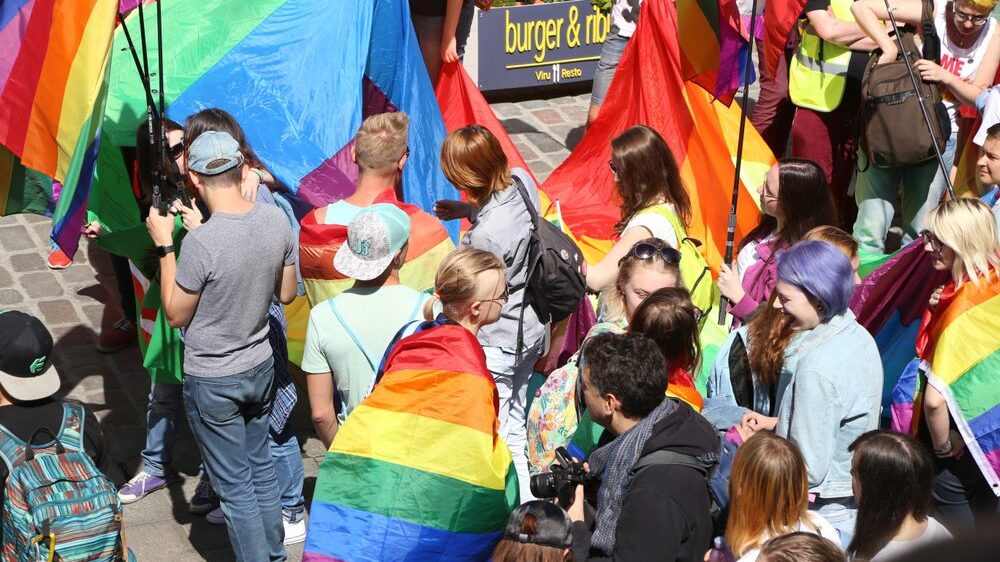
Baltic Pride Parade in Old Town Tallinn, Estonia.
Photo: janguli / Shutterstock.com
The Estonian Parliament set a historic precedent Tuesday, June 20th, becoming the first post-Soviet state to legalise same-sex marriage, despite stiff opposition from the country’s conservative lawmakers.
The new law will take effect on 1 January, 2024 and comes three months after contested elections where the liberal Reform Party comfortably defeated the national-conservative EKRE Party amid claims of voter fraud.
Members of the Riigikogu, the Estonian Parliament, voted Tuesday night 55 to 34 in favour of amendments to the Family Law Act enabling homosexual couples to marry. The Baltic nation is experiencing a wave of liberalisation under the new Reform administration and is also considering a new bill against anti-LGBT hate speech.
The reforms were heavily opposed by the EKRE Party, while government MPs linked the decision to the war in Ukraine and the need for Estonia to “enshrine liberal democratic values.” The decision comes despite a mass rally by Estonian social conservatives last month, addressed by EKRE MPs, protesting the attempt to pass gay marriage.
The law changes the specific mention of “man and woman” to “two natural persons” in Estonian law when it comes to what individuals are able to tie the knot. Estonia first recognised civil partnerships between homosexuals in 2016 after a 2014 decision in the nominally Lutheran but largely secular Baltic nation.
According to opinion polls, a majority of Estonians support gay marriage—however, this view declines among the country’s minority Russian-speaking population to just 40%.
An estimated 38% of Estonians still view homosexuality as morally unacceptable with the divergence highlighting the country’s ethnic split between Russian and Estonian speakers.
Russian speakers constitute an estimated one-quarter of the Estonian 1.3 million population. The war in Ukraine has stirred previously latent tensions in the country amid fears that the Kremlin could utilise ethnic Russians to gain a foothold in the country. Ethnic Russians primarily vote for the Estonian Centre Party whose eleven MPs voted against the legalisation of gay marriage this week.
Estonia, a NATO member since 2004, is a strong backer of the Ukrainian cause, primarily motivated by past historical grievances against Russia and the Soviet Union and current geopolitical threats. The country legalised homosexuality in 1992 and passed transgender legislation in 2014. The issue of LGBT rights has become a major point of contention between the EU and member states in recent years and a major talking point for the Kremlin which says that social conservatives are being alienated by progressive demands.
